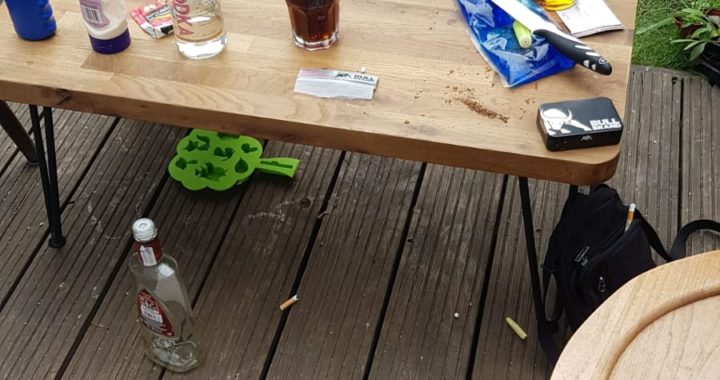I own approved short-term accommodation in Australia. The state government and the local authority require me, as part of the conditions to operate, to comply with requirements of health, safety, insurance, and local amenity or I can be closed down and/or fined.
For example, doors leading into or out of the accommodation cannot have a lock on the inside requiring a key to be opened in case of fire, the smoke/fire detector system is superior to that required for normal residential use, linen must be washed every three days in at least 90 degrees Celsius (194 degrees F), pests (cockroaches, rodents, flies etc) must be controlled by regular fumigation/baiting/barriers, and pets are not allowed in the kitchen, bedrooms or swimming pool area due to disease.
Very strict rules are in force if I supply any food, e.g. sugar cannot be available in an open container, milk must be date stamped and in an unbroken sealed container and refrigerated below 4 C with logs of purchase and use by date, and the fridge must have a thermometer and be kept below 4 degrees Celsius. Regulations for the swimming pool are horrendous but all for the health and safety of guests. I also have to pay a yearly license fee to operate.
The premises are regularly inspected, without notice, by Government Health & Safety Officers. These measures obviously cost more than that of normal residential accommodation as they are over and above the usual requirements. Consequently, I cannot compete in price with an individual who rents out on Airbnb a spare room in their home or the whole of their accommodation when they go on holiday. Airbnb encourages people through incentives to let out their accommodation, with no checks of their legal standing to do so. Unapproved and illegal lets regularly crop up on Airbnb before the authorities shut them down.
People being people seek the cheapest deal and so bypass me in favour of an Airbnb sublet. This causes loss of business for me. It also means guests expose themselves to hazards, disease and financial risks by staying in unapproved accommodation.
For example, a recent newspaper report of an illegal Airbnb property advertised as ‘family friendly’ had a young family as guests over Christmas. The property had swings built by the owner. The father was pushing his two young children on the swing when it toppled over as it was not anchored in the ground. The younger child was crushed and killed on the spot. The other child was admitted to Intensive Care at hospital with life threatening injuries. The owner had invalidated his insurance as he was operating illegally so stands to lose his house in litigation for personal damages/injury. He was also fined by the authorities.
This would not have happened it he had stayed in approved accommodation such as mine. Bear in mind that all insurance is invalidated if not operating legally or to purpose. Most homeowners have residential property and contents insurance. Insurance companies view letting out a room or property to the public as a commercial activity and not residential use by the owner/occupier. Thus any claim for third party liability, damage, loss or injury will be dismissed by the insurer if found the property was not used in accordance with law and insured purpose.
We all know how insurers try to evade paying out if possible. This means a guest must proceed against the host’s personal assets, which may be nil if renting and not an owner or insolvent.
The choice is yours: make some bucks via Airbnb and risk losing your home or being declared bankrupt if things go wrong as well as being prosecuted, or, if a guest, save a few dollars and risk sickness, injury or death without benefit of the host’s insurance, if any, if let out illegally.


